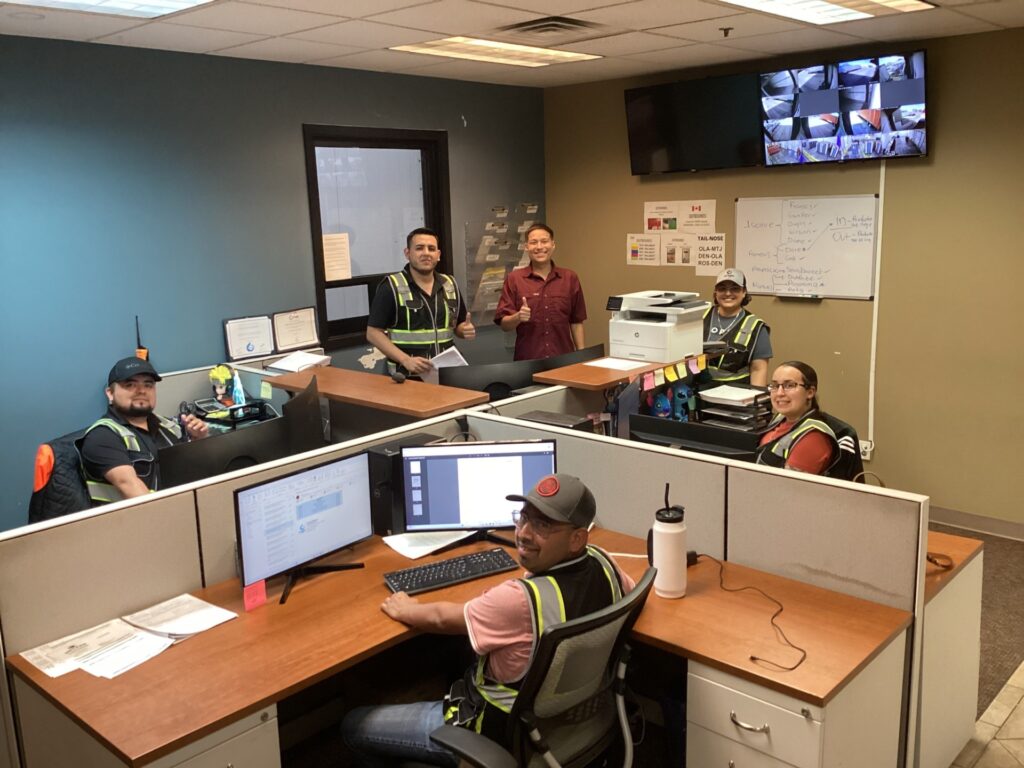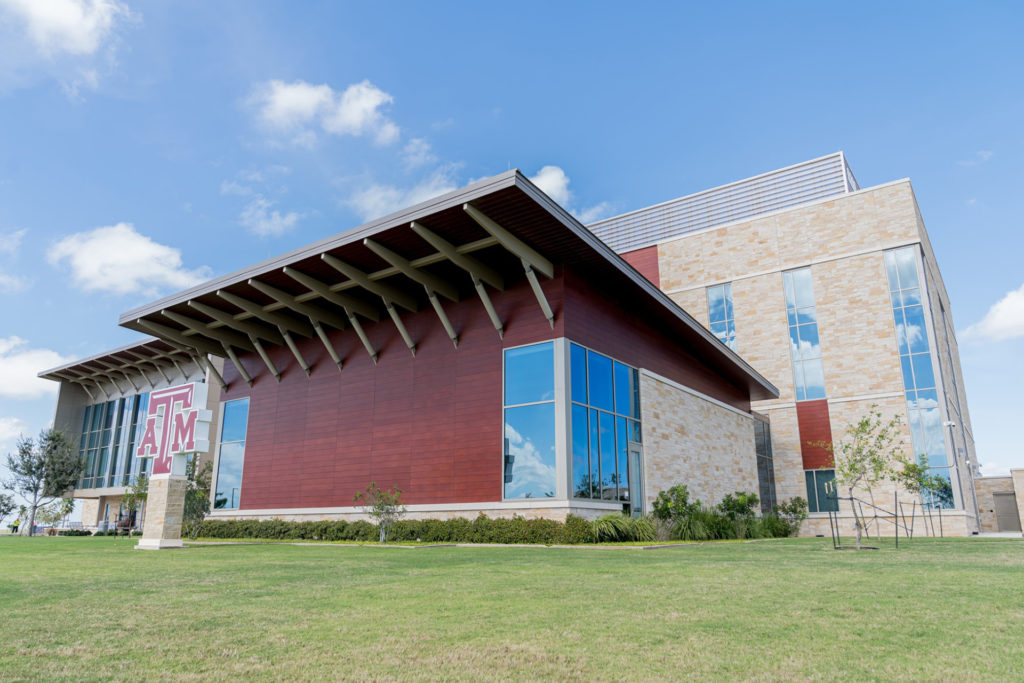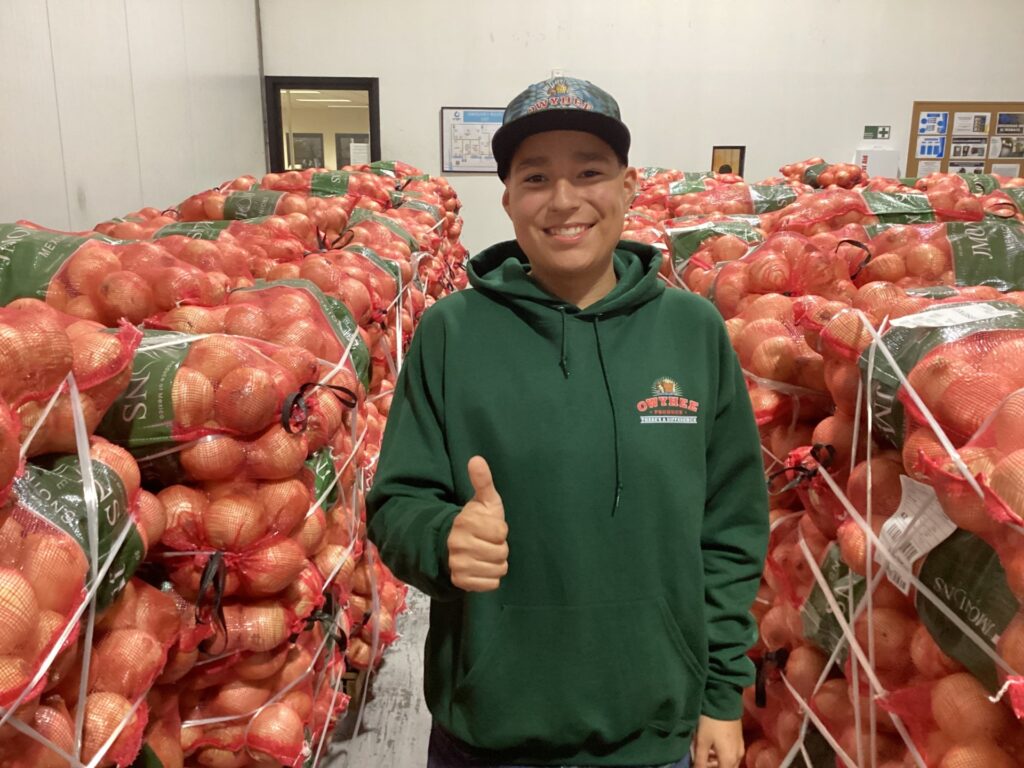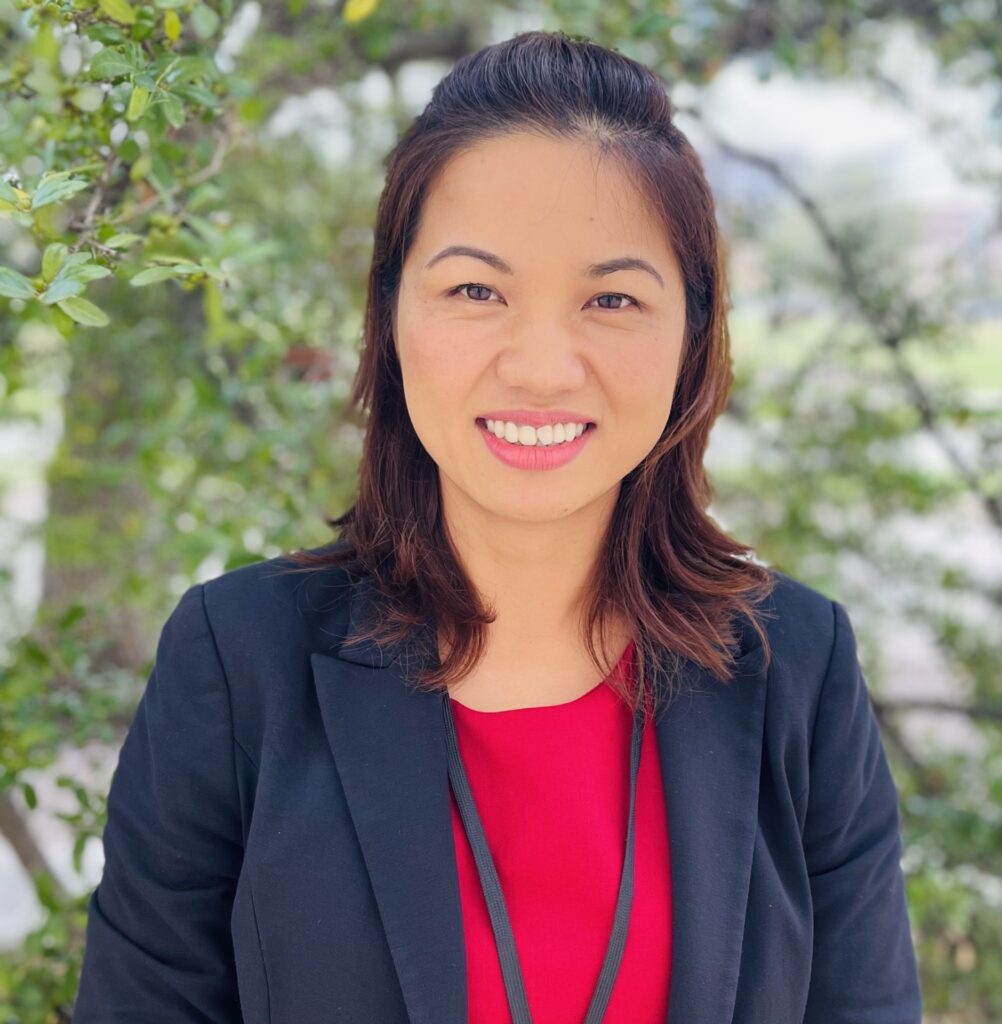Bringing sustainability to family’s legacy through agricultural economics
Diego Chapa dreams of helping agricultural businesses maximize efficiency, viability
Diego Chapa ’25 hopes to learn more about sustainable agricultural businesses and apply that knowledge in the part of Texas he loves and calls home — the Rio Grande Valley.
Now, as one of the first students who will graduate from the expanded agricultural economics program at the Texas A&M University Higher Education Center in McAllen, HECM, he has been able to do this without leaving the area.
About Diego Chapa
Having strong roots in South Texas agriculture, Chapa’s early lessons of the challenges of agricultural sustainability were learned in large part during the time he spent at his uncle’s and father’s Beefmaster cattle operation in Starr County. Additionally, his grandfather worked all his adult life at Starr Produce Company, eventually becoming company foreman.

“My experiences in agriculture when I was growing up in Starr County, especially those related to seeing how much work it was to build a sustainable agricultural business, helped lead me to wanting to study agricultural economics,” he said. “You can love a business, but that’s not enough to pay the bills.”
Chapa said Texas A&M’s decision to expand its Department of Agricultural Economics program in the Rio Grande Valley was pivotal to his education because it allowed him to “enjoy the benefits of obtaining a degree from arguably the best agricultural economics program in the nation” while still being within reach of his family.
It also allowed him to realize a childhood dream — to be a part of the Aggie culture.
“The camaraderie I’ve experienced with other Aggies is greater than anything I would have thought an academic institution to be capable of fostering, especially when you consider our 350-mile distance from the main Texas A&M campus in College Station.”
Perfectly suited for expansion

Agricultural economics faculty members, staff and students at the HECM are ideally situated to support agriculture and agribusiness in the Rio Grande Valley, a growing economic hub where billions of dollars of agricultural product crosses annually, said Rudy Nayga, Ph.D., head of the Department of Agricultural Economics in Texas A&M’s College of Agriculture and Life Sciences, Bryan-College Station.
“We saw this region as a perfect location to produce top-level graduates for the agriculture and agribusiness industry,” Nayga said. “It made perfect sense to expand our agricultural economics program into the Rio Grande Valley.”
Nayga said bringing agricultural economics instruction to the Rio Grande Valley also gives highly qualified students the opportunity to study and find better employment opportunities — opportunities typically associated with a better education and skill set — either in the Rio Grande Valley or elsewhere.
Putting his education to work
As a junior working on an agricultural economics degree with a focus on food marketing systems, Chapa is already putting what he has learned to work — literally.
He completed an internship with Owyhee Produce, which is based in Parma, Idaho, but cross-docks with Origin Warehouse Services in Edinburg, which is where Chapa interned.
“Owyhee Produce needed to more effectively manage the part of their season where they import onions from Mexico, which is May through June,” Chapa said. “My role was to help hold them over on inventory until they harvested their own domestically grown onion crop.”

During his three-month internship, Chapa oversaw the delivery of roughly 7.5 million pounds of onions to the company’s facility at Origin, where his responsibilities were to inspect incoming products, ensuring proper handling of on-hand inventory and accurately scanning out products using the company’s logistics software.
He also navigated what he called the “more nuanced role” of acting as a liaison between the two companies in their day-to-day operations.
“I coordinated with Origin’s shipping department on special orders and updated the team at Owyhee Produce during daily meetings headed by the CEO and general manager for the company’s Parma packing location,” he said.
After completing his internship, Chapa moved into a new role as a student worker in the Department of Agricultural Economics at HECM, where he now supports a variety of tasks ranging from social media efforts to assisting with research.
Bringing interest and knowledge to real life
The small class size and variety of hands-on business experiences available outside the classroom were also appealing to Chapa, and Ly Nguyen, Ph.D., one of his professors at HECM, said these helped him develop both personally and professionally while in the program.

“We gave Diego a lot of real-life experience by inviting him to agricultural economics conferences and taking him and his classmates on tours of five different agribusinesses in the area,” Nguyen said. “Over time, his confidence grew as his knowledge grew about what it would really be like to work at one of those businesses.”
She said the goal of the program is to provide students a combination of theoretical classroom instruction, along with real-life practical experiences that will help them better understand what they might be interested in and prepare them for a career in agriculture or agribusiness.
Chapa gained hands-on experience and insights by visiting local agribusinesses during the program, more specifically those involved in the international produce trade.
“Being familiar with these types of business operations gave me an advantage when applying for my internship,” he said.
After graduation, Chapa said he hopes to initially pursue a career in the Rio Grande Valley area.
“I’m hoping to start off in a full-time job with an agribusiness for at least a year,” he said. “Then, during that time, I can decide whether I should move forward on that path or pursue a master’s degree and develop myself into an even more capable job candidate. Ultimately, I hope whatever career path I choose will help me toward my goal of helping agricultural businesses improve their efficiency, productivity and profitability.”
The agricultural economics program in the Rio Grande Valley
HEMC agricultural economics course instruction takes place in McAllen’s Tres Lagos community. The program began in the fall of 2021 and the first cohort of students will graduate in 2024. Currently, there are about 15 students enrolled for the fall semester.
So far, four Department of Agricultural Economics professors are providing undergraduate instruction at HEMC. Nguyen and Lucas Garcia, Ph.D., have been given full-time teaching assignments. Samuel Zapata, Ph.D., Anthony Baffoe-Bonnie, Ph.D., and a third faculty member who will start Jan. 1, will teach at the center as well as conduct research at the Texas A&M AgriLife Research and Extension Center in Weslaco.
For more information on the program, go to https://tx.ag/AGECInRGV.


